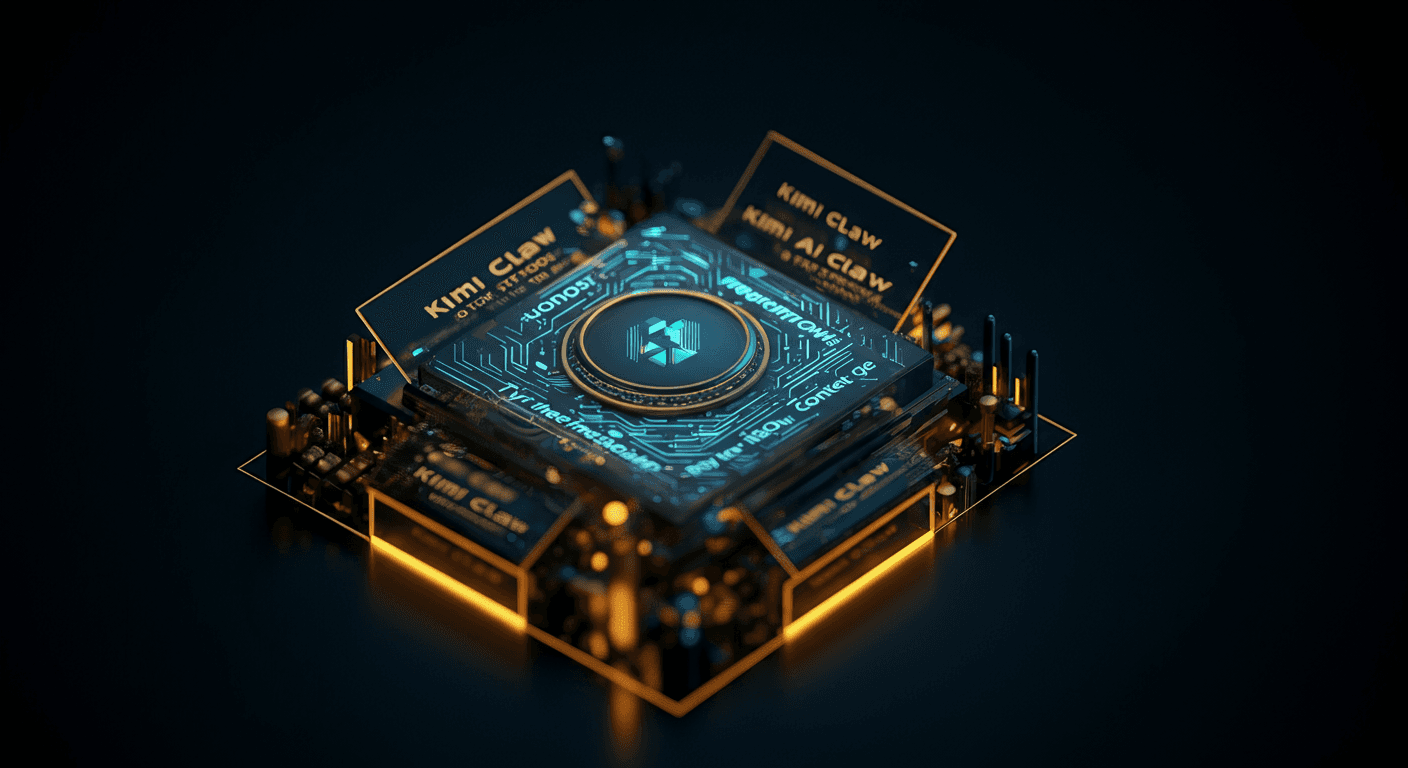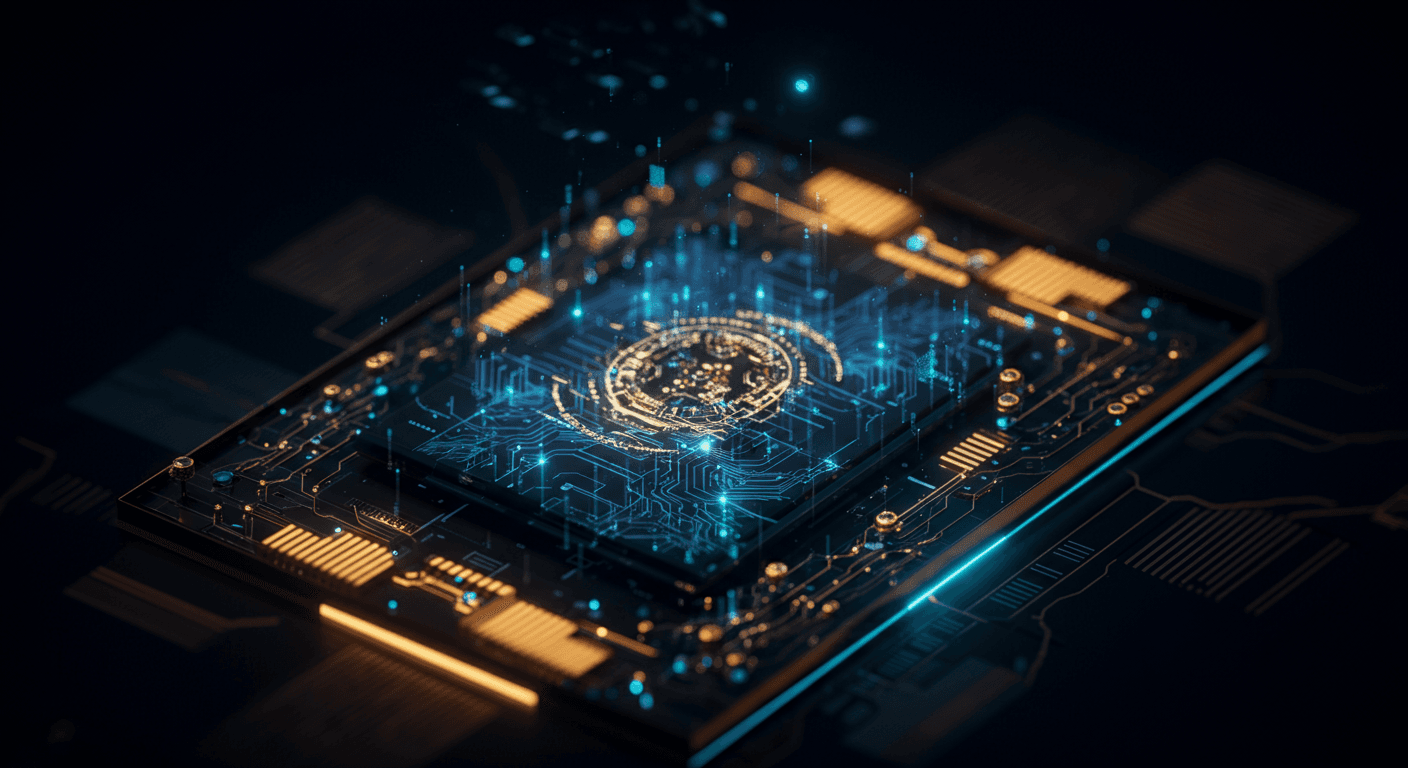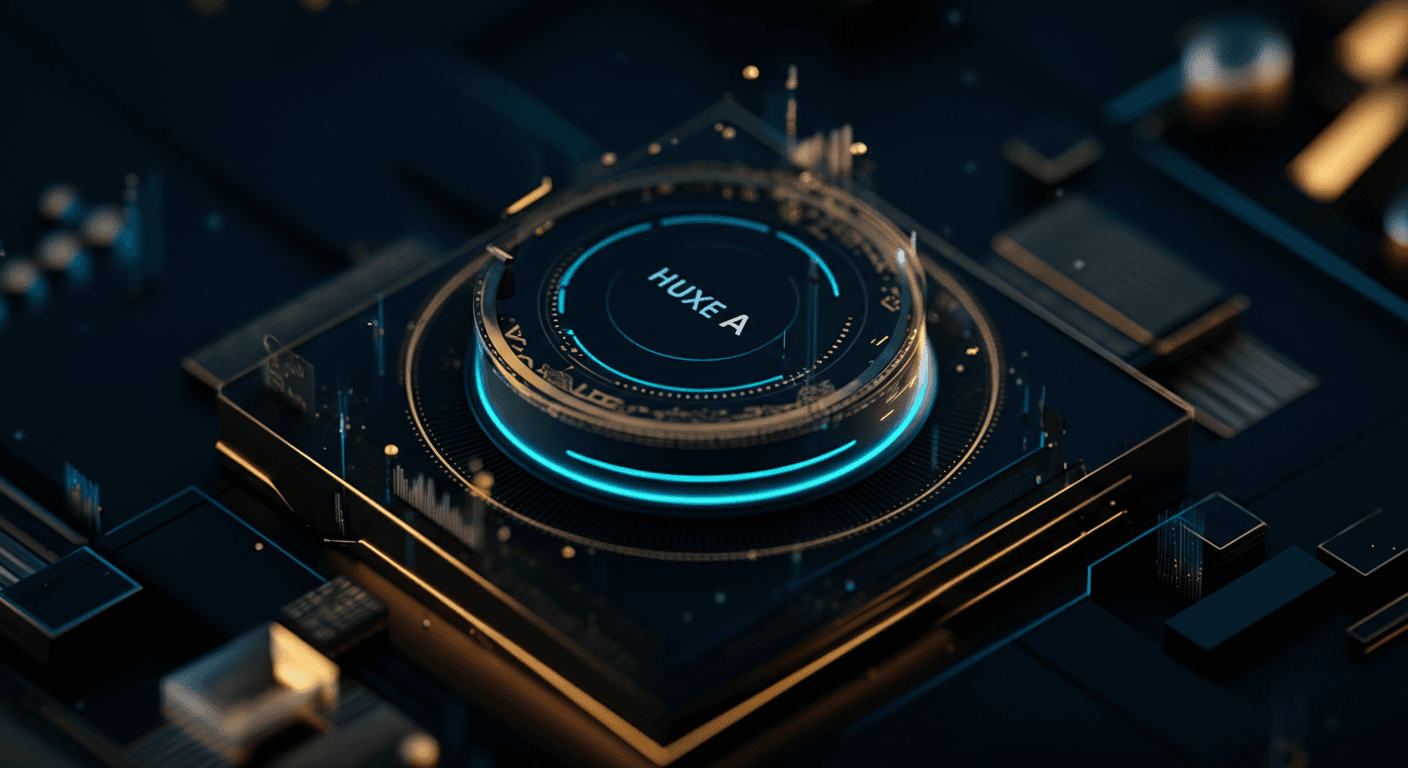🌐 International AI Press Digest — August 13, 2025: Perplexity’s $34.5B Chrome Bid & Enterprise AI Agents Transform

Perplexity's shocking $34.5 billion bid for Google Chrome signals a bold move to disrupt the browser market with AI integration, offering users a seamlessly intelligent web experience. To capitalize on this shift, explore AI-powered search tools and understand the evolving digital landscape. Be aware that regulatory hurdles may impact this deal.
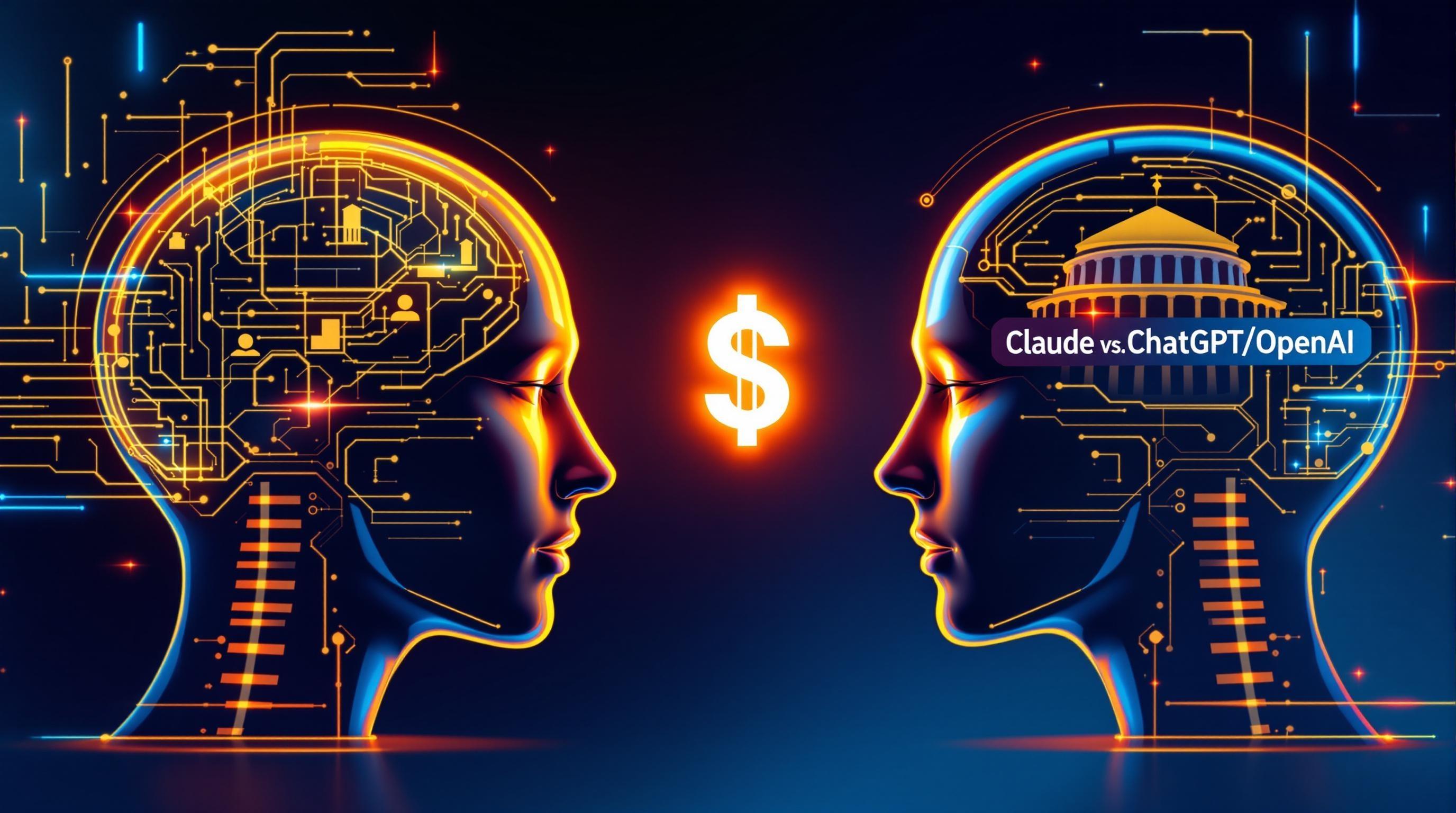
KI Shockwaves: Perplexity Bids $34.5 Billion for Google Chrome
The AI world was set ablaze on August 13th with a stunning, unsolicited bid that has everyone talking.
KI Shockwaves: Perplexity's Bold Chrome Bid
In a move that sent shockwaves through the tech industry, Perplexity, the AI-powered search engine known for its conversational interface and summarization capabilities, has offered a staggering $34.5 billion to acquire Google Chrome. This audacious bid represents not just a financial proposition, but a strategic play aimed squarely at challenging Google's iron grip on the internet browser market.
A David vs. Goliath Scenario
While Google remains the undisputed king of search, Perplexity's Chrome bid signals a clear intent to disrupt the status quo. Imagine a world where your browser is seamlessly integrated with an AI assistant, proactively providing answers and insights as you navigate the web. That's the vision Perplexity is selling, and owning Chrome would give them the perfect platform to realize it.
Strategic Implications and Antitrust Concerns
This bid isn't just about technology; it's about power. Owning Chrome would give Perplexity unparalleled access to user data and browsing habits, further fueling its AI models and potentially creating a more personalized and intuitive search experience. However, such a concentration of power also raises significant antitrust concerns. Regulators would likely scrutinize the deal closely, weighing the potential benefits of innovation against the risks of creating a monopolistic AI powerhouse. The deal may face regulatory obstacles, particularly given Google's existing dominance and the potential for Perplexity to leverage Chrome to unfairly promote its search engine.
The acquisition could stifle competition and limit consumer choice in the long run. The question is: will regulators allow such a deal to pass?
"KI-SCHOCKWELLEN AM 13. AUGUST - Chrome-BID! Unaufgefordertes Gebot"
Translated from German, this header emphasizes the shocking and unexpected nature of Perplexity's offer. The phrase "KI-Schockwellen" (AI shockwaves) perfectly captures the disruptive impact of the bid, while "unaufgefordertes Gebot" (unsolicited bid) highlights the unexpected nature of Perplexity's move. The German text adds a sense of urgency and excitement to the announcement, reflecting the broader industry reaction to the news.
The potential acquisition of Chrome by Perplexity is more than just a business deal; it's a high-stakes gamble that could redefine the future of how we interact with the internet, potentially leading to a showdown reminiscent of classic tech rivalries. The implications of this move are far-reaching, and the tech world will be watching closely to see how this drama unfolds, especially as the development of new AI News continues to evolve at breakneck speeds.
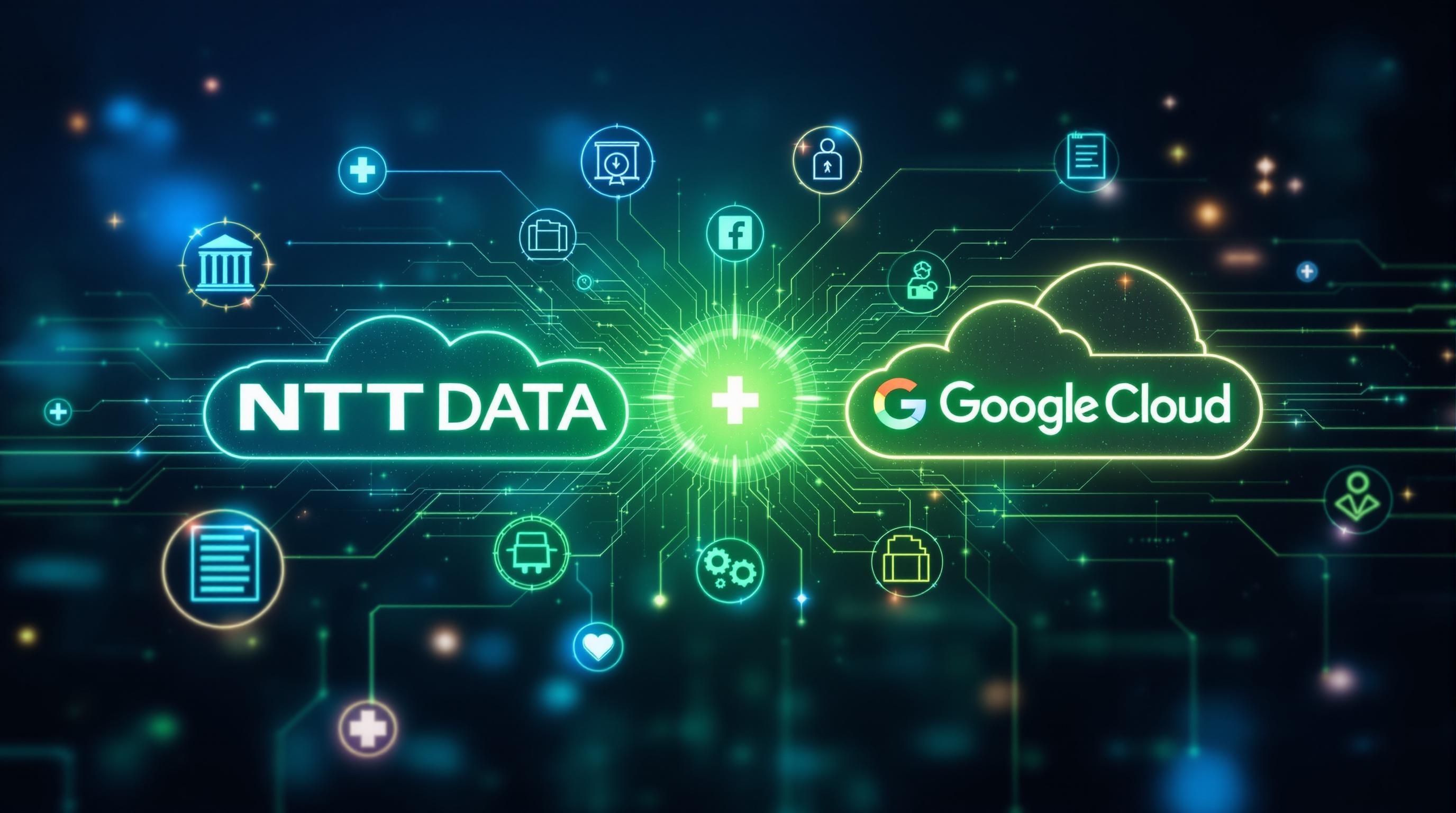
NTT DATA & Google Cloud Mega-Partnership Accelerates AI Agent Adoption
The landscape of AI adoption is rapidly evolving, and strategic partnerships are becoming the bedrock for widespread implementation.
NTT DATA and Google Cloud: An AI Agent Powerhouse
NTT DATA, a global IT services provider, has forged a significant alliance with Google Cloud AI to accelerate the adoption of AI agents across key industries. This isn't just a simple collaboration; it's a mega-partnership designed to inject AI-driven solutions into the heart of major sectors, promising enhanced efficiency and innovation.
Think of it as a tech supercharger for businesses. NTT DATA's deep industry expertise, combined with Google Cloud's cutting-edge AI capabilities, creates a synergy poised to transform how businesses operate. This partnership aims to bridge the gap between AI's potential and its practical application, making AI agents an integral part of day-to-day operations.
Targeting Key Industries: Banking, Insurance, Manufacturing, and Healthcare
The strategic focus of this partnership hones in on industries ripe for AI disruption. These sectors—banking, insurance, manufacturing, and healthcare—stand to gain immensely from the integration of AI agents. Imagine:
- Banking: AI agents automating customer service, detecting fraud with unparalleled accuracy, and personalizing financial advice.
- Insurance: Streamlining claims processing, assessing risk more effectively, and offering tailored insurance products based on individual needs.
- Manufacturing: Optimizing production lines, predicting equipment failures before they happen, and ensuring quality control through AI-powered visual inspection.
- Healthcare: Assisting in diagnosis, personalizing treatment plans, and managing patient data with greater efficiency and security.
This targeted approach ensures that AI solutions are not just generic applications but are finely tuned to address the specific challenges and opportunities within each industry.
Massive Joint Market Investments
Underpinning this ambitious partnership is a substantial financial commitment. While the exact figures remain under wraps, it's clear that both NTT DATA and Google Cloud are investing heavily in joint market initiatives. This includes:
- Research and Development: Funding the creation of new AI agent technologies and refining existing ones.
- Talent Acquisition: Attracting top AI specialists to drive innovation and implementation.
- Infrastructure Development: Expanding the necessary computing power and resources to support AI agent deployment at scale.
- Go-to-Market Strategies: Developing comprehensive plans to introduce and integrate AI agent solutions to businesses worldwide.
This level of investment signals a strong belief in the transformative power of AI agents and a dedication to making them accessible and effective for businesses of all sizes.
Beschleunigung von KI-Agenten in Unternehmen (Accelerating AI Agents in Enterprises)
Central to this partnership is the goal of rapidly accelerating the deployment of AI agents within enterprises. This involves:
- Simplifying Integration: Developing tools and platforms that make it easier for businesses to incorporate AI agents into their existing systems.
- Providing Scalable Solutions: Offering AI agent solutions that can grow and adapt as business needs evolve.
- Ensuring Security and Compliance: Implementing robust security measures and adhering to regulatory standards to protect sensitive data.
The aim is to remove the barriers that have traditionally hindered AI adoption, making it a seamless and value-added process for businesses.
Globale Mega-Partnerschaft (Global Mega-Partnership)
This partnership isn't confined to a single region; it's a global initiative with worldwide reach. NTT DATA and Google Cloud are leveraging their combined global presence to:
- Serve a Diverse Customer Base: Offering AI agent solutions to businesses in various countries and industries.
- Address Regional Challenges: Tailoring AI solutions to meet the specific needs and regulatory requirements of different regions.
- Foster Global Collaboration: Encouraging knowledge sharing and collaboration among AI experts and businesses worldwide.
By operating on a global scale, this mega-partnership is set to have a far-reaching impact on the AI landscape, driving innovation and adoption across borders.
This strategic alliance between NTT DATA and Google Cloud represents a pivotal moment in the evolution of AI adoption. By focusing on key industries, investing heavily in joint market initiatives, and operating on a global scale, this partnership is poised to accelerate the integration of AI agents into the fabric of modern business. It's a testament to the growing recognition of AI's transformative potential and the power of collaboration in unlocking that potential. As we look to the future, the success of this partnership could serve as a blueprint for further collaborations in the AI space, driving innovation and reshaping industries across the globe. To stay ahead of such advancements, keeping up with AI News is more crucial than ever.

TACIT: AI Revolutionizes Cell Analysis, Accelerating Drug Discovery
Imagine compressing weeks of painstaking lab work into mere minutes – that's the promise of a new AI platform poised to revolutionize cell analysis and drug discovery. Researchers in Virginia have developed TACIT, an AI tool designed to drastically accelerate the process of identifying and classifying cells, a critical step in understanding disease and developing effective treatments.
From Weeks to Minutes: The Speed of AI
The traditional methods of cell analysis are notoriously slow and labor-intensive. Scientists often spend weeks manually examining cells under a microscope, painstakingly categorizing them based on visual characteristics. TACIT changes the game by leveraging the power of artificial intelligence to automate this process. Think of it like this: imagine sorting through a massive library of books, each representing a cell, and having to manually read the title and description of each one to place it in the correct genre. TACIT is like having an AI librarian who can instantly scan and categorize each book, saving countless hours.
TACIT reduces cell analysis time from weeks to mere minutes, a truly game-changing acceleration.
This speed boost isn't just about convenience; it has profound implications for scientific progress. By rapidly analyzing cells, researchers can quickly gain insights into the mechanisms of disease, identify potential drug targets, and evaluate the efficacy of new therapies. This accelerated pace could dramatically shorten the drug development pipeline, bringing life-saving treatments to patients faster. Tools such as DeepMind AlphaFold, which predicts protein structures with remarkable accuracy, are also contributing to breakthroughs in drug discovery, highlighting the transformative potential of AI in this field.
Accuracy Matters: TACIT's Impressive Performance
Of course, speed is only valuable if it's coupled with accuracy. Fortunately, TACIT doesn't compromise on precision. The AI platform boasts an impressive 81% accuracy rate in identifying 51 different cell types. This level of accuracy is crucial for ensuring that the insights derived from cell analysis are reliable and trustworthy. To put this into perspective, imagine using Grammarly, the AI-powered writing assistant, but instead of catching grammar errors, it's correctly identifying different types of cells with 81% accuracy.
Here’s a breakdown of TACIT’s key features:
- Speed: Reduces cell analysis time dramatically.
- Accuracy: Achieves 81% accuracy in cell type identification.
- Scale: Can identify 51 different cell types.
- Potential: Accelerates drug development and disease research.
Accelerating Drug Development: A New Era of Discovery
The potential of TACIT to accelerate drug development is perhaps its most significant contribution. The process of developing new drugs is typically a lengthy and expensive one, often taking years and costing billions of dollars. A major bottleneck in this process is the identification and validation of drug targets – the specific molecules or pathways that a drug is designed to interact with. By rapidly analyzing cells, TACIT can help researchers quickly identify promising drug targets and evaluate the effects of potential drug candidates. In conjunction with AI-driven platforms for tasks such as Prompt Engineering (used to optimize experimental design), the entire research process can be significantly streamlined.
Ultimately, TACIT represents a significant step forward in the application of AI to biomedical research. Its ability to rapidly and accurately analyze cells has the potential to revolutionize our understanding of disease and accelerate the development of new treatments. As AI continues to advance, we can expect to see even more innovative tools emerge that transform the way we approach scientific discovery, which you can follow in our AI News section.
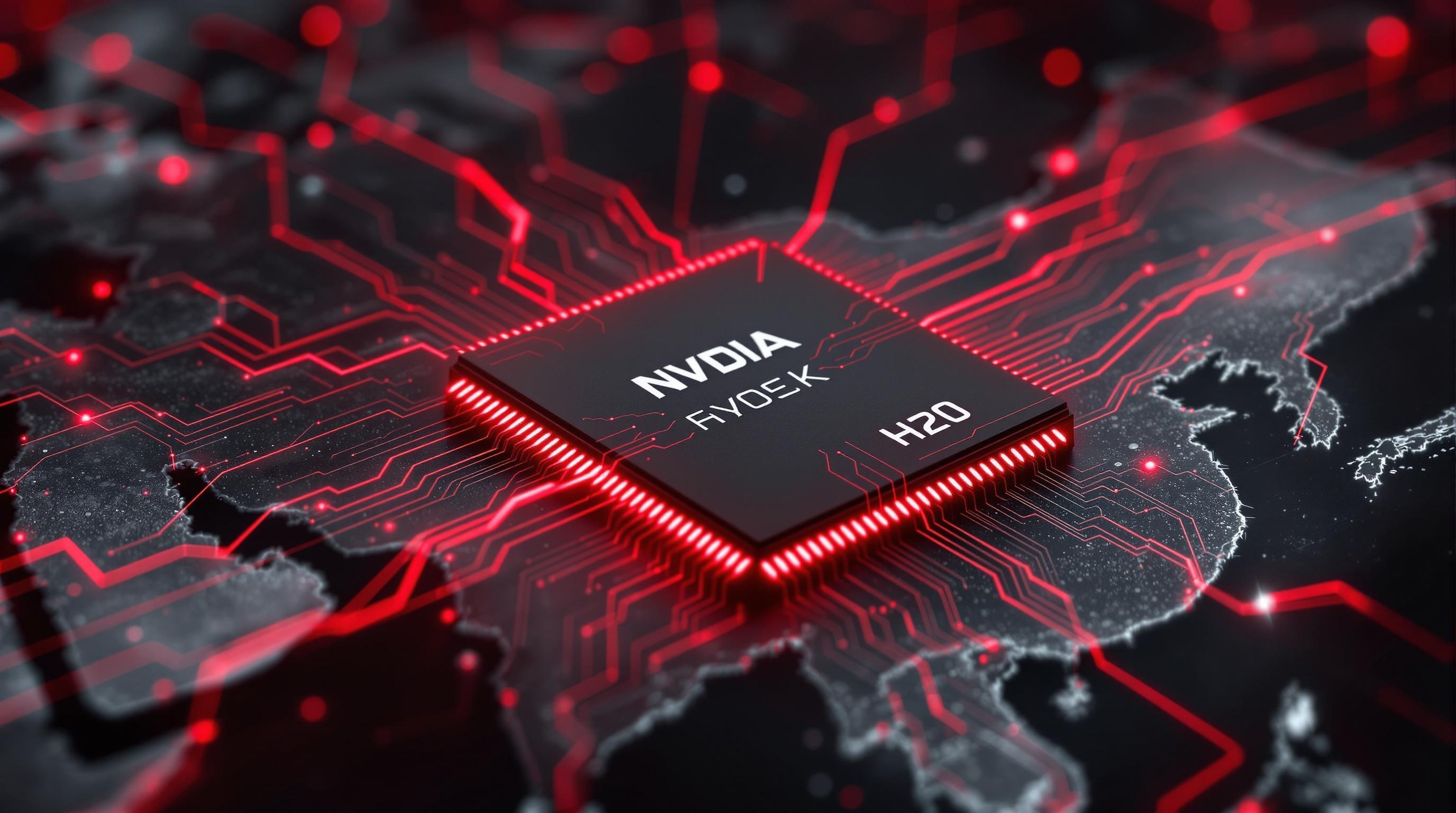
China Warns Against Nvidia H20 Chips Over Security Risks
The AI landscape is not just about technological advancements; it's increasingly intertwined with geopolitical tensions, a reality underscored by recent developments involving Nvidia and China.
China's Security Concerns Over Nvidia's H20 Chips
China has voiced significant security concerns regarding Nvidia's H20 chips, specifically designed to comply with U.S. export restrictions. These concerns revolve around the potential for backdoors within the chips, raising the specter of unauthorized access or data breaches. The fear is that these backdoors could be exploited for espionage or other malicious purposes, compromising sensitive data and critical infrastructure. This has led to increased scrutiny and caution within the Chinese tech sector regarding the adoption of these chips.
The fear of backdoors highlights a growing trend: nations are increasingly wary of foreign technology, especially when it comes to AI, viewing it through the lens of national security.
Questioning of Chinese Tech Giants
In the wake of these security warnings, Chinese tech giants have faced increased scrutiny regarding their orders of Nvidia's H20 chips. Authorities are reportedly questioning these companies to assess the extent of their reliance on the chips and to evaluate potential vulnerabilities. This inquiry reflects a broader effort to mitigate risks associated with foreign technology and to promote the development of domestic alternatives. This also comes at a time when Chinese companies are making leaps and bounds with their own AI News, with companies like Moonshot AI's Kimi K2 making waves.
Geopolitical Tensions and the AI Chip Race
This situation underscores the intensifying geopolitical tensions surrounding AI technology, particularly in the realm of advanced chips. The U.S. and China are locked in a fierce competition for dominance in AI, with access to cutting-edge chips being a crucial factor. The restrictions imposed by the U.S. on chip exports to China have further fueled these tensions, prompting China to accelerate its efforts to develop indigenous chip manufacturing capabilities. This tech rivalry extends beyond chips, influencing the development and deployment of AI tools across various sectors.
Backdoor Security Risks
The concern over potential backdoors in AI chips isn't limited to just China. It is a wider discussion around trust and transparency in technology supply chains. The concept of a 'backdoor' – a hidden access point that bypasses normal security measures – raises serious security and privacy concerns. If such a backdoor were to exist, it could allow unauthorized entities, be they state actors or malicious hackers, to gain control of systems, steal data, or even disrupt operations. This highlights the critical need for rigorous security audits and transparency in the design and manufacturing of AI hardware. One tool to help mitigate these risks would be Blackbox AI as it can help analyze code to search for potential backdoors and vulnerabilities.
As nations grapple with the implications of AI, the intersection of technology and geopolitics will only become more complex. The scrutiny surrounding Nvidia's H20 chips serves as a reminder of the need for vigilance, transparency, and proactive measures to safeguard against potential security threats in an increasingly interconnected world. This push and pull of security concerns and technological advancement will likely continue to shape the future of AI.
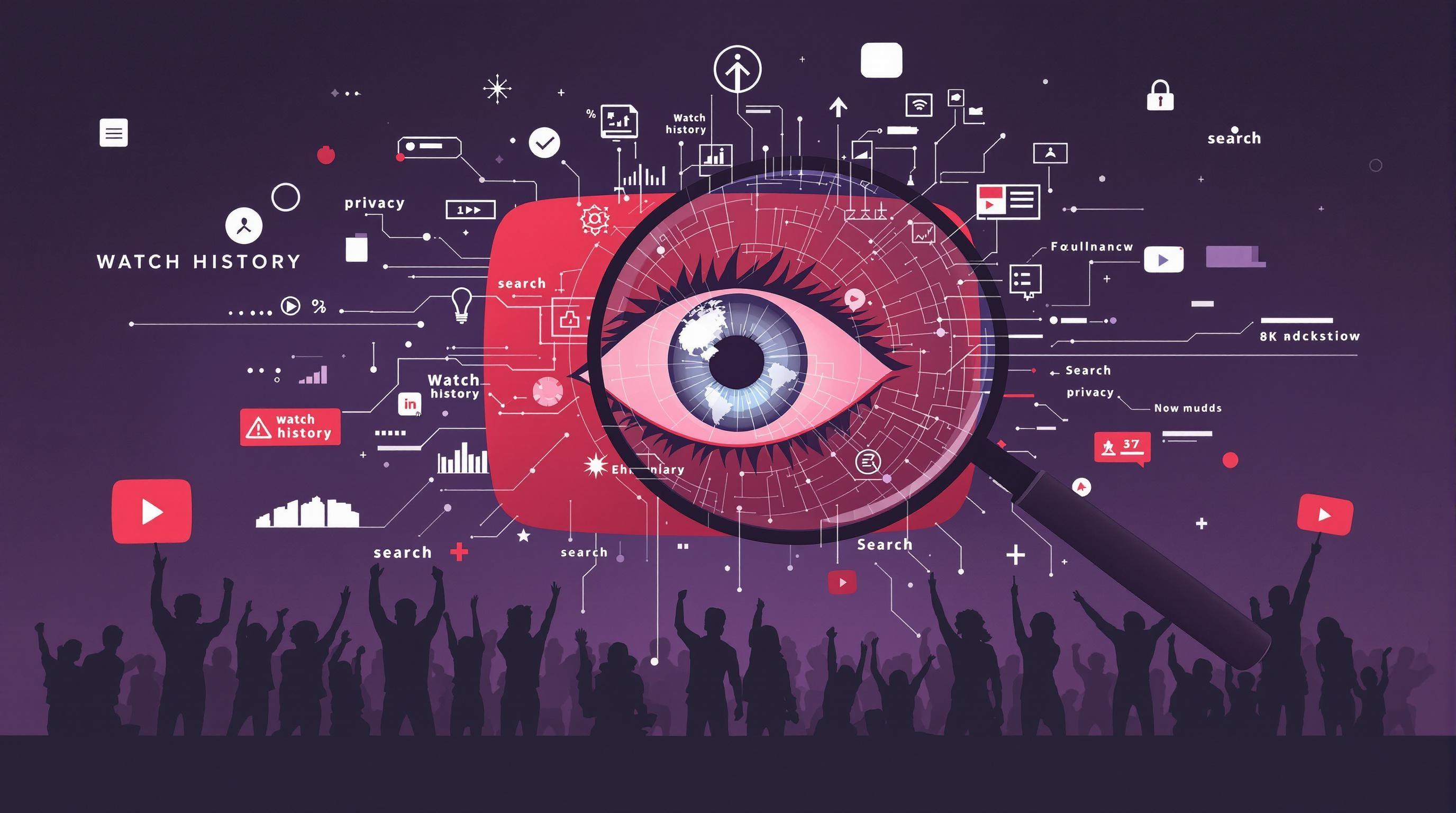
Anthropic Challenges OpenAI, Offers Claude AI to US Government for $1
The AI landscape is constantly shifting, and the latest development sees Anthropic directly challenging OpenAI's dominance, particularly in the lucrative government sector.
Anthropic's Audacious Offer: Claude AI for a Dollar
In a move that has turned heads across the industry, Anthropic, the company behind the powerful Claude AI assistant, has offered its services to the U.S. government for a staggeringly low price: just $1 per year. This isn't just a symbolic gesture; it's a clear declaration of intent to compete aggressively for government contracts and establish Claude as a critical resource for national interests. This is a bold move that underscores the rising tensions within the AI community, with companies vying for influence and control in this rapidly evolving field.
Anthropic's offer signifies a pivotal moment in the AI race: a willingness to sacrifice short-term profits for long-term strategic positioning within the government sector.
Challenging OpenAI's Government Grip
For some time, OpenAI, with its ChatGPT and other cutting-edge AI models, has enjoyed a favored position in securing government contracts. Anthropic's offer directly challenges this status quo. By providing access to Claude at a nominal cost, Anthropic aims to demonstrate the value and capabilities of its AI to key government agencies, potentially displacing OpenAI's solutions in certain areas. This competition can only benefit the government, providing it with more options and potentially driving innovation as companies strive to offer the most effective and cost-efficient AI solutions.
The Aggressive Pricing Strategy
While the $1 price tag is undoubtedly attention-grabbing, it's crucial to understand the underlying strategy. Anthropic is betting that by lowering the barrier to entry, it can:
- Gain widespread adoption: Encouraging various government departments to integrate Claude into their workflows.
- Gather valuable data: Obtaining real-world usage data to further refine and improve Claude's performance.
- Build long-term relationships: Establishing strong partnerships with government agencies that could lead to more substantial, long-term contracts in the future.
This approach resembles a loss-leader strategy, where a product is sold at a loss to attract customers who will then purchase other, more profitable goods or services. In this case, the long-term value lies in becoming an indispensable AI partner for the U.S. government.
KI-Regierungskrieg: The AI Government War
In German, "KI-Regierungskrieg" translates to "AI Government War," and it aptly describes the current competitive landscape. This isn't a physical war, of course, but a battle for influence, contracts, and technological supremacy within the government sphere. Companies are investing heavily in research and development, lobbying efforts, and strategic partnerships to gain an edge. The stakes are high, as government contracts not only provide significant revenue but also validate a company's technology and establish its credibility.
Kampf um Regierungsverträge: The Battle for Government Contracts
"Kampf um Regierungsverträge," meaning "battle for government contracts," further emphasizes the intensity of the competition. Securing these contracts requires more than just offering advanced technology; it also involves navigating complex procurement processes, meeting stringent security requirements, and demonstrating a commitment to ethical AI development. Companies must convince government agencies that their solutions are not only effective but also reliable, secure, and aligned with national values. As AI continues to permeate various aspects of government operations, from national security to public health, the battle for these contracts will only intensify. This increasing competition also highlights the importance of understanding key concepts, which can be explored further in our AI News section. Understanding the nuances of AI is becoming increasingly critical in navigating this evolving landscape. The battle for AI supremacy is here, and the government sector is a key battleground.
Anthropic's bold move is a clear signal that the fight for AI dominance is far from over. By offering Claude to the U.S. government for a mere dollar, they've thrown down the gauntlet, challenging OpenAI and setting the stage for a fascinating showdown in the AI arena.
YouTube's AI Age Verification Sparks Privacy Concerns and User Protests
The seemingly endless march of AI into every corner of our digital lives has hit a snag on YouTube, and users aren't happy.
YouTube's AI Age Gate: A New Approach
YouTube's introduction of AI-powered age verification is intended to create a safer environment, especially for younger viewers. The system analyzes various data points, including:
- Video viewing patterns: What kind of content does the user frequently watch?
- Search history: What terms are being searched?
- Engagement metrics: How does the user interact with videos (likes, comments, subscriptions)?
By analyzing these behaviors, the AI aims to determine if an account is likely being used by someone under the age of 18. This move is designed to ensure that age-restricted content isn't accidentally (or deliberately) accessed by minors, aligning with child safety regulations and platform guidelines. This is somewhat similar to what JanitorAI, an AI-powered roleplaying platform, does to ensure a safe user experience.
Analyzing User Behavior: Treading a Fine Line
While the stated goal is laudable, the method raises eyebrows. YouTube's AI is essentially profiling users based on their digital footprints. This "profiling" approach is designed to be proactive, identifying potentially underage users even if they haven't explicitly stated their age. If the AI suspects an account is being used by a minor, it prompts the user to verify their age with official identification.
This proactive analysis walks a tightrope between protection and privacy invasion.
It's a high-stakes game; accuracy is paramount. False positives could lead to frustrating experiences for adult users, while false negatives defeat the entire purpose of the system.
Backlash and Boycotts: The Privacy Pushback
The response from the YouTube community has been swift and largely negative. Privacy advocates and everyday users alike are voicing serious concerns about the potential for data misuse and the erosion of online anonymity. The system inevitably collects and stores more data about user behavior, which could become a target for breaches or be used for purposes beyond age verification.
The backlash has manifested in boycott movements, with users threatening to leave the platform in protest. The hashtag #YouTubeBoycott is gaining traction, fueled by anxieties about the extent of data collection and the potential for misidentification. Many feel that YouTube is overstepping its bounds, creating a surveillance system disguised as a safety feature. It's not unlike the discussions we're seeing around Gauth, an AI math solver, and the ethical considerations of AI in education.
KI-Altersverifikation und Datenschutzproteste: Ein Blick nach Deutschland
In Germany, the concerns are particularly acute, reflecting the nation's strong emphasis on data protection. The phrase "KI-Altersverifikation" (AI age verification) is trending in online discussions, often coupled with "Datenschutzproteste" (data privacy protests). German users are wary of any system that could potentially violate their constitutional right to privacy. The fear is that AI-driven age verification could lead to a slippery slope, where more and more personal information is collected and analyzed without transparency or consent. This resonates with broader debates around AI ethics, explored in our AI News section.
Ultimately, YouTube's AI age verification initiative highlights the ongoing tension between online safety and individual privacy. While the platform aims to protect children, the methods employed are triggering significant pushback. The controversy underscores the need for a transparent, balanced approach to AI implementation, one that respects user rights while addressing legitimate safety concerns. This situation also begs the question, what are the alternatives? Perhaps more robust parental controls or stricter content labeling could provide similar protections with less intrusion. As AI continues to evolve, these debates will only intensify, demanding thoughtful solutions that prioritize both safety and privacy.
🎧 Listen to the Podcast
Hear us discuss this topic in more detail on our latest podcast episode: https://creators.spotify.com/pod/profile/bestaitools/episodes/International-AI-Press-Digest--August-13--2025-Perplexitys-34-5B-Chrome-Bid--Enterprise-AI-Agents-Transform-Business--August-13--2025-Daily-AI-News-Podcast-e36q07o
Keywords: AI News, Perplexity Chrome Bid, Google Chrome Acquisition, AI Agents, NTT DATA Google Cloud Partnership, TACIT AI Cell Analysis, Nvidia H20 Chip Ban China, Anthropic Claude US Government, YouTube AI Age Verification, Artificial Intelligence, Tech News, AI Cybersecurity Risks, AI Ethics, AI Privacy Concerns
Hashtags: #AINews #Perplexity #GoogleChrome #TechNews #ArtificialIntelligence
For more AI insights and tool reviews, visit our website https://best-ai-tools.org, and follow us on our social media channels!
- Website: https://best-ai-tools.org
- X (Twitter): https://x.com/bitautor36935
- Instagram: https://www.instagram.com/bestaitoolsorg
- Reddit: https://www.reddit.com/r/findAIwithAI/
- Telegram: https://t.me/BestAIToolsCommunity
- Medium: https://medium.com/@bitautor.de
- Spotify: https://creators.spotify.com/pod/profile/bestaitools
- Facebook: https://www.facebook.com/profile.php?id=61577063078524
- YouTube: https://www.youtube.com/@BitAutor
Recommended AI tools
OpenAI Academy
Conversational AI
Empowering the next generation of AI innovators
AI Undresser
Image Generation
Uncover the hidden truth
Credo AI
Data Analytics
The trusted leader in AI governance
Islam & AI
Conversational AI
Bridging Islam and Artificial Intelligence
AI for daily life
Search & Discovery
Discover how AI can make your life easier
Responsible AI Institute
Scientific Research
Empowering Ethical AI
Was this article helpful?
Found outdated info or have suggestions? Let us know!
